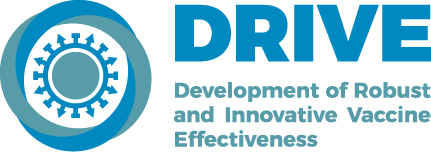Maintaining a good quality of life has become one of the key objectives of all the agents involved in supporting and treatment activities for people with chronic diseases. Apoyo Positivo has focused for the past 28 years on improving people affected with sexually transmitted diseases’ wellbeing. We get to know a bit more about them and their interest in DRIVE in this second interview with our patient collaborators.
How has Covid-19 affected the communities you serve and how have you responded?
The Covid-19 pandemic has affected the LGBT community in a similar way to how the rest of the population has been affected. Social isolation measures have affected our users unevenly depending on their bio-psycho-social circumstances and their environments.
To give an example: older people with HIV have suffered the strict confinement that was imposed in the first year of the pandemic between fear and the worsening of their loneliness. These people have seen their medical care be delayed and, on some occasions, they have missed appointments or diagnostic tests with relevant consequences for their health. In another profile of a person with HIV, young drug users have been subjected to great social pressure that has sometimes helped them to control the stimuli for consumption, but in moments of relaxation and without the previously offered measures of therapeutic control, this may have led to a worsening of the pattern of consumption. Trans people have been especially vulnerable, as we have observed some engage in sex work as a source of income.
In our entity, we have adapted to the reality of the pandemic by forcing ourselves to carry out our activity virtually whenever possible: in the care of vulnerable profiles (psychological and social assistance to people who consume chemsex, migrants…), we have temporarily adapted some of our physical facilities such as a “food bank” and “necessities (hygiene) bank”. Even so, we have kept our HIV/STI checkpoint open if it has been allowed by public health institutions, aware that regular HIV and STI screening services have malfunctioned due to the pressure that the pandemic has exerted on them.
Do the people you serve face any particular challenges or risks due to the pandemic such as interrupted healthcare?
As mentioned in the previous point, people with HIV have seen how their health care has been affected. Some people have suffered from the collapse of primary care without being able to consult for banal (or not so banal) health problems. Other people have seen how their medical visits at the hospital level were delayed without a clear date, or rescheduled electronically through inappropriate communication channels, which they had to use to deal with intimate or delicate health issues. Other people have had to organize shipments of medication to places where they have been surprised by the strict lockdowns imposed by Public Health authorities. In short, all medical needs of the users we assist have been affected to a greater or lesser extent, and from our entity we have tried to minimize the impact through different strategies.
Are vaccines important in your work and are there any particular vaccines you focus your communications on or advocate for?
From the entity in which I collaborate (I say this because I am an HIV specialist and in my healthcare practice as a physician I approach my work differently) we place special emphasis on promoting vaccination against sexually transmitted pathogens, such as HAV, HBV and HPV. At our HIV/STI checkpoint we have specifically implemented serologies for AcHBs and IGG-HAV in order to detect vaccination needs against these viruses. When we detect a negative result (i.e. no former immunization), we refer our users to a public STI clinic to vaccinate our users free of charge. We promote vaccination against HPV in users under 26 years of age as well, for whom vaccination against HPV is financed in our environment. Secondarily, we point out the importance of adhering to the vaccination recommendations against other pathogens, preparing and empowering our users for the immunizations recommended in different clinical practice guidelines.
Is there a wider interest in knowing vaccine effectiveness rates among your stakeholders?
Yes, obviously. One of our objectives as an entity of public utility is the promotion of health in the sexual-affective field. This entails the promotion of therapeutic immunizations as a preventive measure for our users.
This video demonstrates how DRIVE is governed and works; what value do you think could be gained through the partnership of the public sector and private partners?
We are very interested in exploring this public-private collaboration process to improve access for our users (and all people with HIV) to influenza vaccination.
